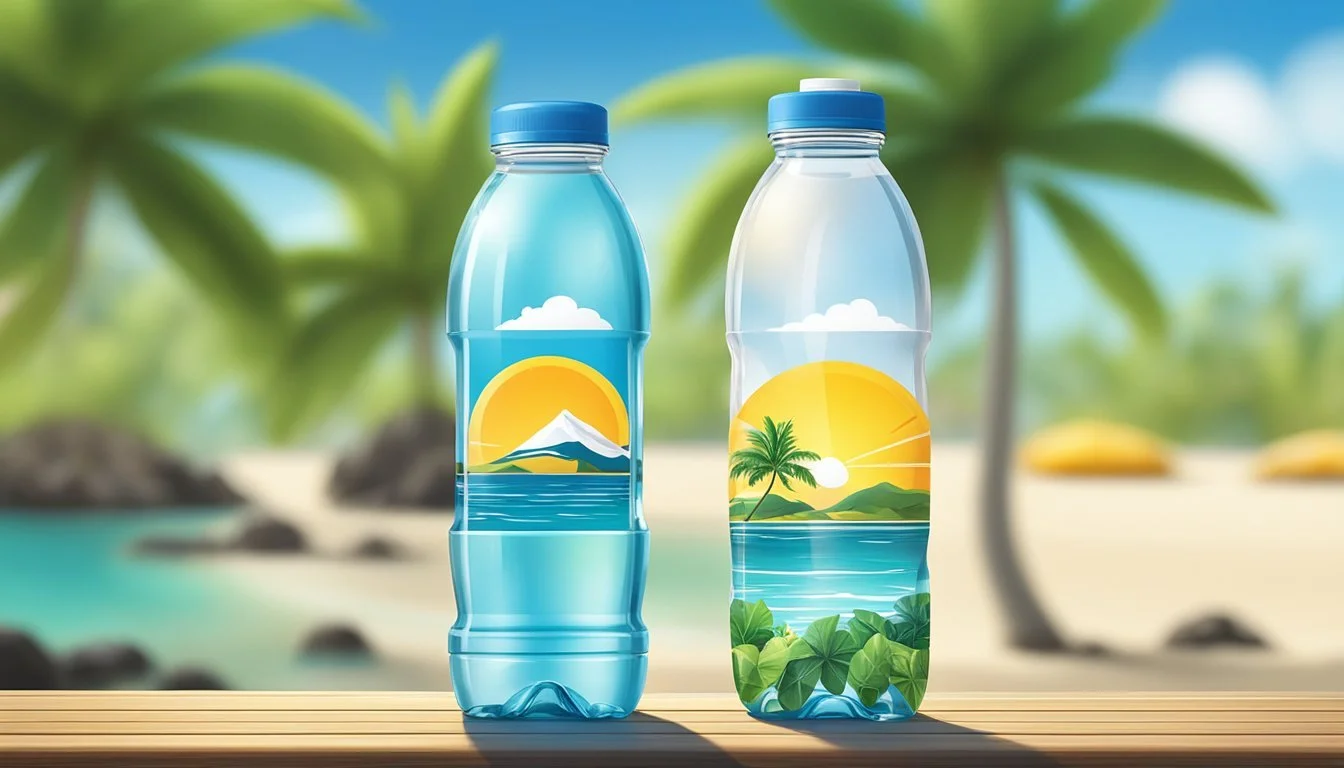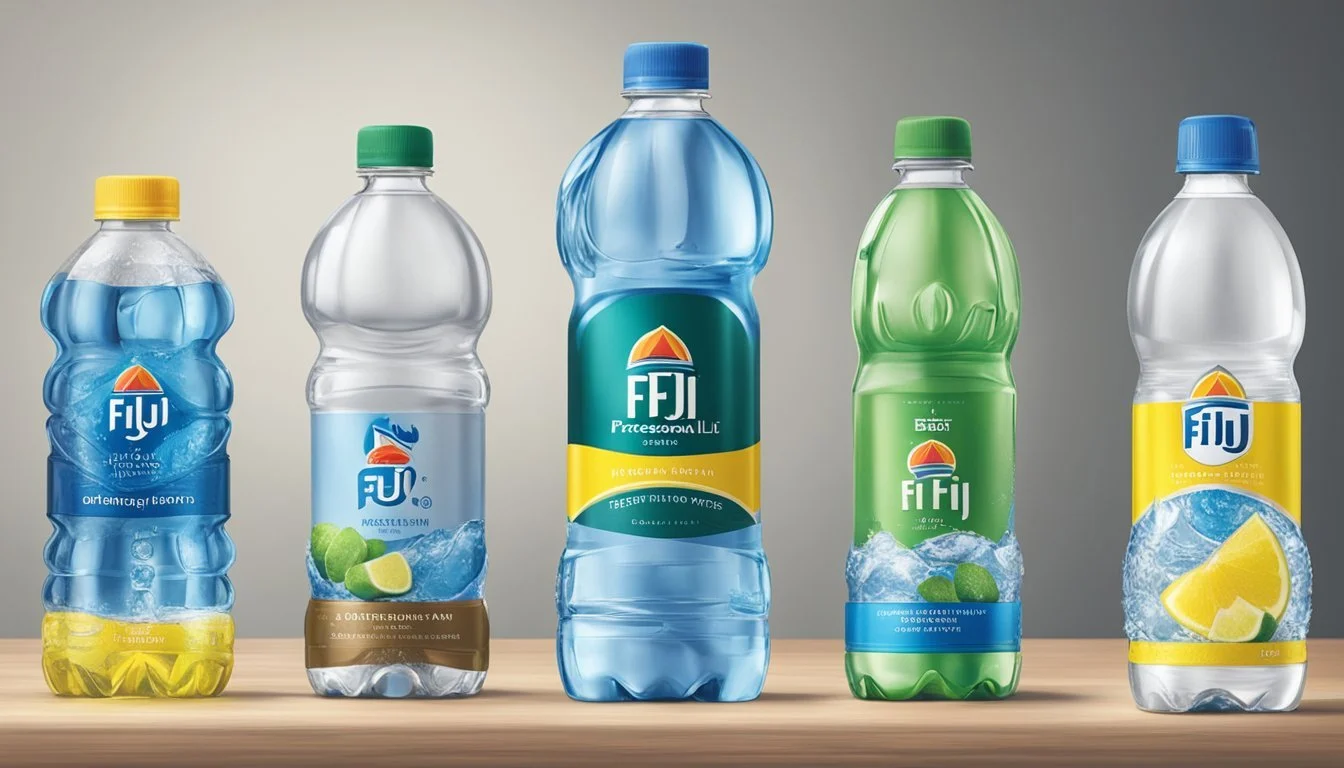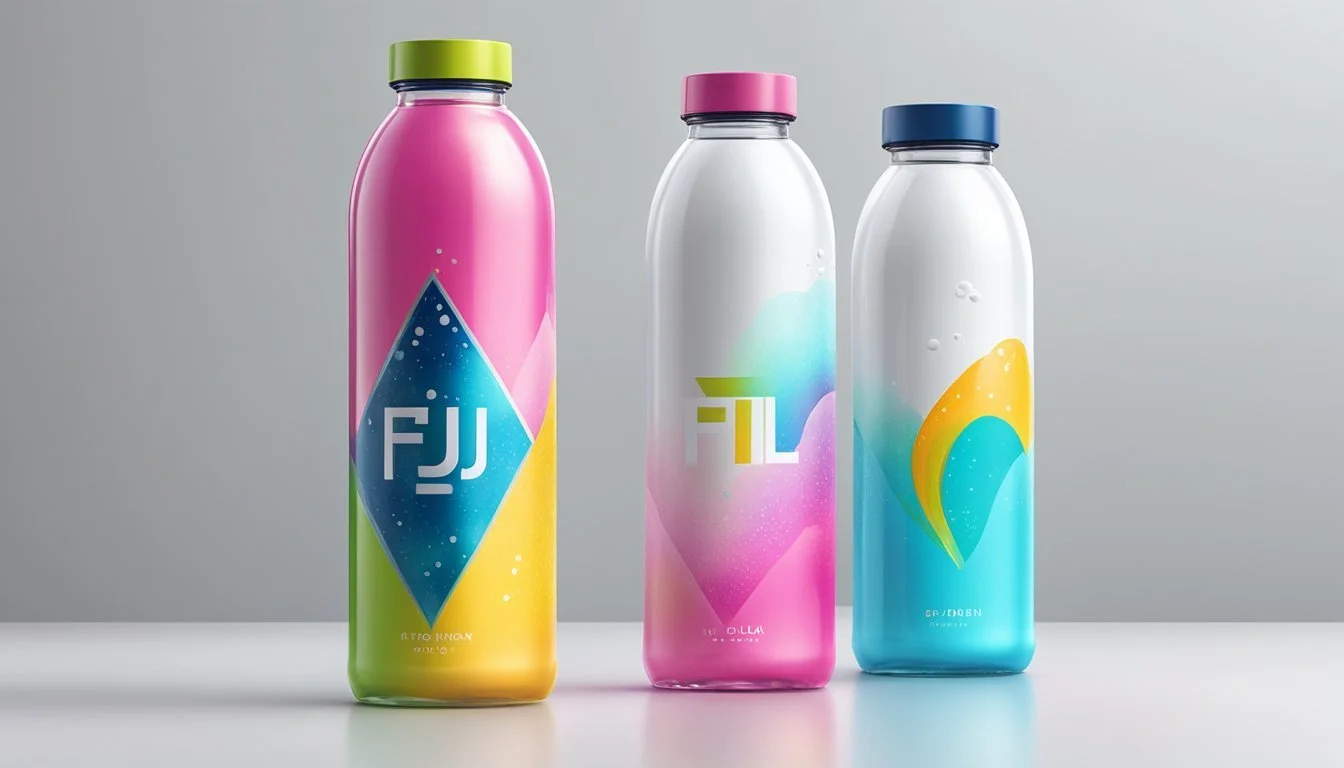Fiji vs. Defy
Which Bottled Water is Better for You?
Debates over the best bottled water brands often spark lively discussions among enthusiasts. Comparing Fiji and Defy, both premium brands, reveals significant differences that can influence your choice. Fiji Water boasts natural artesian origins from the remote islands of Fiji, offering a smooth taste and high mineral content. This has made it a favorite among many for its pure and untainted qualities.
Defy, on the other hand, markets itself as a high-alkaline water with a pH level above 9, aimed at those seeking health benefits from alkaline water. Its packaging and branding also cater to a more performance-oriented demographic. While Fiji appeals to those who appreciate natural purity, Defy targets consumers looking for enhanced hydration and potential health advantages.
Ultimately, if your priority is a naturally sourced, mineral-rich water, Fiji is the clear winner. For those who prefer the potential health benefits of high-alkaline water, Defy may be the better option. This comprehensive comparison aims to guide you in making an informed decision based on your hydration needs and preferences.
Understanding Bottled Water
Bottled water comes in various types and serves different purposes. Key aspects include its historical origins, its place in today's marketplace, and the different categories available to consumers.
Origins of Bottled Water
Bottled water has a long history, dating back to the early 17th century. The first commercial bottling of water began at the Holy Well in the United Kingdom.
People believed the well's mineral water had health benefits. In the 19th century, the industry expanded. Technological advancements made it easier to bottle and distribute water.
The United States saw its first bottled water in the 1760s, sourced from mineral springs. By the late 19th century, bottled water was a popular alternative to potentially contaminated tap water.
Bottled Water Industry Overview
Today, the bottled water industry is a multi-billion-dollar global market. Major brands include Fiji, Evian, and Smartwater.
The industry caters to consumers seeking convenience and perceived purity. Some bottled waters are marketed for their added minerals and electrolytes. These can appeal to health-conscious individuals.
Environmental concerns over single-use plastic bottles have led to the introduction of more sustainable packaging solutions. Brands are increasingly adopting recycled materials and promoting recyclable packaging options.
Categories of Bottled Water
Bottled water is categorized into various types: spring water, purified water, mineral water, and sparkling water.
Spring water comes from natural sources and usually retains minerals found at the source. Purified water is processed to remove impurities, often through distillation or reverse osmosis.
Mineral water contains a specific amount of dissolved minerals, beneficial for health. Sparkling water is infused with carbon dioxide gas for effervescence.
Consumers can choose these different types based on taste, mineral content, and specific needs such as hydration or electrolyte replenishment.
Fiji Water: An Exclusive Experience
Fiji Water is renowned for its unique source, distinct taste, and mineral-rich benefits. The following key points provide a comprehensive look at what sets Fiji Water apart.
Fiji's Natural Artesian Source
Fiji Water is sourced from a natural artesian aquifer located in the remote Fiji Islands. This pristine origin ensures that the water remains uncontaminated by human activity. The artesian aquifer is naturally protected by layers of volcanic rock, which provide a natural filtration system.
The water’s journey through these natural filters enriches it with essential minerals. Maintained at a constant temperature and pressure, the purity and composition of Fiji Water are meticulously preserved from source to bottle.
Health Benefits and Mineral Content
Fiji Water boasts a unique mineral profile, enriched with silica, calcium, and magnesium. Silica, present in significant quantities, is known for its benefits to skin, hair, and nails. A 500ml bottle contains roughly 45mg of silica, promoting overall vitality.
Calcium and magnesium contribute to maintaining strong bones and optimal muscle function. The balanced mineral content not only promotes health benefits but also enhances the water's taste. Consumers seeking naturally sourced, mineral-rich water often prefer Fiji due to these qualities.
Taste Profile and Consumer Choices
The distinct taste of Fiji Water is often described as smooth and soft, attributed to its unique mineral composition. Silica, in particular, is noted for imparting a subtle, silky texture that differentiates it from other bottled waters.
Consumer preferences highlight Fiji Water as a premium choice, often selected for its luxurious image and perceived health benefits. Marketed as a high-end product, it appeals to those who prioritize purity and quality. The combination of its natural origin and mineral richness underscores its reputation as a premium bottled water.
Defy Water: A Comparison
Defy Water has distinct characteristics compared to other bottled water brands. This section breaks down the production and sourcing, taste and mineral content, and its market perception through detailed comparison with Aquafina.
Production and Sourcing
Defy Water is sourced from natural springs. The production process emphasizes minimal processing to retain the water’s natural properties.
They use advanced purification techniques to ensure high-quality standards. Essentia also employs similar processes, focusing on purity. This is crucial for consumers seeking water with fewer contaminants.
Packaging is another area of focus, with an aim for sustainability. While plastic use is minimized, it remains an area for potential improvement.
Defy's Taste and Mineral Enhancements
Defy Water undergoes specific mineral enhancements to create a balanced flavor profile. The addition of electrolytes aids in enhancing the water’s taste and perceived health benefits.
In taste tests, Defy Water is noted for its smooth and clean taste, akin to Essentia. The natural minerals imbued during production contribute to this fresh taste, setting it apart from purified waters like Aquafina.
The result is a water that feels more refreshing, without the plastic aftertaste that some other brands have.
Market Perception and Aquafina Comparison
In the bottled water market, Defy competes directly with brands like Aquafina. Aquafina, widely recognized for its affordability and availability, contrasts with Defy's premium positioning.
Consumers often choose Defy for its natural spring sourcing and mineral content. In comparison, Aquafina relies heavily on widespread distribution and marketing.
Defy's higher price point reflects its commitment to quality and natural sourcing. Market perception places Defy as a more health-conscious choice compared to Aquafina, which is seen as a reliable but basic option for hydration.
Health & Safety Standards
Both Fiji and Defy bottled water brands adhere to stringent health and safety standards to ensure consumer safety and product quality. Several factors, such as regulatory compliance and the presence of contaminants, are crucial.
Regulatory Standards and Safety Measures
Fiji and Defy must comply with regulations set by authorities like the FDA and EPA in the United States. These regulations set limits on contaminants such as bacteria, chemicals, and heavy metals, including lead and arsenic.
Fiji Water sources its product from an artesian aquifer in Viti Levu, Fiji. It undergoes rigorous testing to ensure quality.
Similarly, Defy adheres to stringent safety standards. The brand focuses on sourcing water from sustainable locations, treated with advanced purification methods. Both brands emphasize transparency with consumers about their safety measures.
Brand Regulatory Compliance Testing Frequency Source Location Fiji FDA, EPA Regularly Artesian aquifer, Fiji Defy FDA, EPA Regularly Advanced purification sites
Contaminant and Impurity Analysis
Ensuring the absence of harmful contaminants is vital. Regular testing for impurities like microplastics, heavy metals, and chemical residues is part of the process for both brands.
Fiji Water's composition includes silica and electrolytes, beneficial for hydration. They also test for harmful substances like lead and mercury.
Defy emphasizes the purity of its water through multiple filtration stages. Their testing focuses on eliminating contaminants, ensuring the product meets health standards.
Brand Key Components Tested Contaminants Fiji Silica, Electrolytes Microplastics, Lead, Mercury Defy Pure Water Microplastics, Heavy Metals, Lead
Both brands prioritize health and safety, but their approaches and sources offer different benefits.
Environmental Footprint
The environmental footprint of Fiji and Defy bottled water encompasses several crucial areas: plastic use in bottling, sustainability initiatives, and the environmental impact of water sourcing. Each aspect contributes differently to the companies' overall eco-friendliness.
Plastic Use in Bottling
Both Fiji and Defy use single-use plastic bottles, predominantly made from polyethylene terephthalate (PET), a type of plastic known for its recyclability. Fiji Water's bottles have faced criticism for contributing significantly to plastic waste. The company has made efforts to reduce the weight of their bottles to limit raw material usage.
Defy has introduced bottles using a blend of recycled PET (rPET), aiming to decrease new plastic production. They also encourage consumers to recycle their bottles, highlighting the importance of reducing plastic pollution. This approach aligns with the broader goal of minimizing the environmental footprint associated with packaging.
Sustainability Initiatives
Fiji Water has implemented several sustainability initiatives. They have invested in carbon reduction projects, aiming for a negative carbon footprint by supporting reforestation and renewable energy projects. Additionally, they plan to use 100% rPET for their bottles in the near future.
Defy, on the other hand, focuses on local bottling and distribution, reducing the carbon emissions associated with transportation. Their sustainability measures also extend to their supply chain, emphasizing sustainable sourcing practices and eco-friendly operations. This local approach can significantly cut down the carbon footprint from long-distance shipping.
Environmental Impact of Water Sourcing
Fiji Water is sourced from an artesian aquifer in Fiji, which raises concerns about potential over-extraction in a region where water is a valuable resource. The environmental impact includes both the potential depletion of local water sources and the carbon emissions from shipping water globally.
Defy sources its water from local artesian wells, significantly reducing transportation-related emissions. By sourcing water locally, Defy lessens its overall environmental impact. This local sourcing strategy contributes to a smaller carbon footprint compared to globally shipped brands.
Both companies show efforts to mitigate their environmental impacts, but the effectiveness of these initiatives varies.
Economic Considerations
Examining the economic aspects of bottled water brands involves understanding price points, value propositions, market dynamics, and consumer preferences. Fiji Water and Defy both have distinct approaches to pricing and market positioning.
Price Comparison and Value Proposition
Price is a significant factor in the bottled water market. Fiji Water often positions itself as a premium brand, reflecting this in its price tag, typically around $2.50 per bottle. The brand's reputation for quality and its unique sourcing location contribute to its higher price.
In contrast, Defy Water might offer a more competitive price, aimed at a different segment of the market. Without precise data on Defy's pricing, one can infer that if marketed as a more cost-effective option, it appeals to consumers seeking value without compromising perceived quality. Pricing strategies greatly influence consumer choice and brand loyalty in the competitive water market.
Market Trends and Consumer Preferences
The bottled water industry continues to grow, driven by both consumer health consciousness and convenience. Fiji Water benefits from a strong brand reputation and a loyal customer base that values its unique silica content and "untouched" source claims.
Defy Water may appeal to a different demographic, possibly those more environmentally conscious or price-sensitive. Market trends suggest an increasing demand for eco-friendly packaging and responsibly sourced products. Brands meeting these consumer preferences are well-positioned to capitalize on shifting market dynamics. Understanding these trends is crucial for both brands to navigate and succeed in the diverse water market landscape.
Taste Test and Quality Assessment
The comparison of Fiji and Defy bottled waters centers around their distinct taste profiles and the results from blind taste test studies. These factors help provide insight into their standing as premium water options.
Understanding Taste Profiles
Fiji Water is renowned for its soft, smooth taste, a result of its unique mineral content derived from volcanic aquifers in Viti Levu, Fiji. This water undergoes natural filtration, which contributes to its distinctive, silky mouthfeel and subtle mineral taste, appealing to many premium water enthusiasts.
Defy Water, compared to Fiji, prides itself on its crisp and refreshing taste. Sourced from pristine springs, it boasts a balanced mineral composition that offers a clean and invigorating experience. The inclusion of electrolytes sets it apart, enhancing its taste and providing added health benefits.
Blind Taste Test Studies
Blind taste tests help eliminate bias by removing brand influence. In studies comparing Fiji and Defy, participants are often unable to identify the brands, judging purely on taste alone. Such tests typically reveal preferences based on individual taste profiles.
In several studies, Fiji consistently scores high for its smooth texture and natural sweetness. Participants often favor its rich mineral taste, reflected in a high net favorability rating. Defy also performs well, particularly among those who prefer a crisper, more refreshing taste.
Overall, both Fiji and Defy have their own appeal, influencing consumer choice in the premium water market. Where Fiji boasts a more velvety profile, Defy attracts with its invigorating and balanced flavor. This differentiation underscores the importance of personal preference when choosing between these premium waters.
Branding and Marketing
Fiji and Defy bottled water brands employ distinct marketing and branding strategies that reflect their target audiences and unique selling points, influencing consumer perceptions and loyalty.
Marketing Strategies of Top Brands
Fiji Water emphasizes its luxurious image by highlighting its natural artesian source in the Yaqara Valley. Their marketing leverages the exotic origin, premium pricing, and pristine quality. Advertising often features high-end visuals and testimonials from celebrities, emphasizing purity and exclusivity.
Defy focuses on innovation and functionality. The brand markets its product as essential for fitness enthusiasts and health-conscious individuals. Campaigns showcase athletes and fitness experts endorsing the water, stressing benefits like enhanced hydration and performance.
Nestlé Pure Life markets broadly to families, ensuring affordability and widespread availability. Their campaigns often highlight safety, purity, and that their product is a healthy choice for all ages.
LIFEWTR uses a visually-driven approach, collaborating with emerging artists to create unique bottle designs. This aligns with their messaging around creativity and inspiration, appealing to a younger, trend-conscious demographic.
Voss targets sophisticated consumers with an emphasis on its sleek bottle design and pure water source from Norway. Marketing often includes placements in luxury environments and partnerships with high-end events and venues.
Consumer Brand Perception
Fiji Water is perceived as a premium brand, associated with purity and exclusivity. Its consistent high price point reinforces its high-end status. Consumers often view it as a treat or special occasion option.
Defy is seen as a performance-enhancing water, favored by those who lead active lifestyles. Customers associate the brand with athleticism and advanced hydration.
Nestlé Pure Life enjoys a reputation for reliability and safety among families. It's considered a practical, everyday option that balances cost with quality.
LIFEWTR appeals to creative and artistic individuals who appreciate the aesthetic value of the bottle and the brand's support of the arts. The unique designs make it a trendy choice.
Voss is recognized for its stylish packaging and high purity, making it a staple in upscale settings. Consumers link it with luxury and sophistication, often choosing it for its visual appeal as much as for its taste.
These brands tailor their messaging to attract different consumer groups, enhancing their distinct market positions through strategic marketing practices.
Packaging and Beyond
In examining the contrast between Fiji and Defy bottled water, an essential aspect lies in their packaging choices and the broader implications of these decisions. This section delves into the materials used, sustainability efforts, and innovations each brand has embraced.
Innovations in Bottled Water Packaging
Fiji Water traditionally uses single-use plastic bottles. This packaging choice has faced scrutiny due to environmental concerns, particularly regarding plastic waste and its impact on ecosystems. Despite this, Fiji's bottles are known for their aesthetic appeal and brand recognition.
Defy distinguishes itself by utilizing aluminum packaging. Aluminum offers a more sustainable option as it is recyclable and has a longer lifecycle compared to plastic. This step also aligns with increasing consumer demand for environmentally responsible products.
The shift to alternative packaging materials like aluminum represents a significant effort in reducing ecological footprints. Both brands, through their packaging choices, reflect broader trends in the bottled water industry toward sustainability and innovation.
More About Fiji
Fiji vs Mountain Valley Spring Water: Which Bottled Water is Better?
Fiji vs Whole Foods Italian Still Mineral water: Which Bottled Water is Better?






